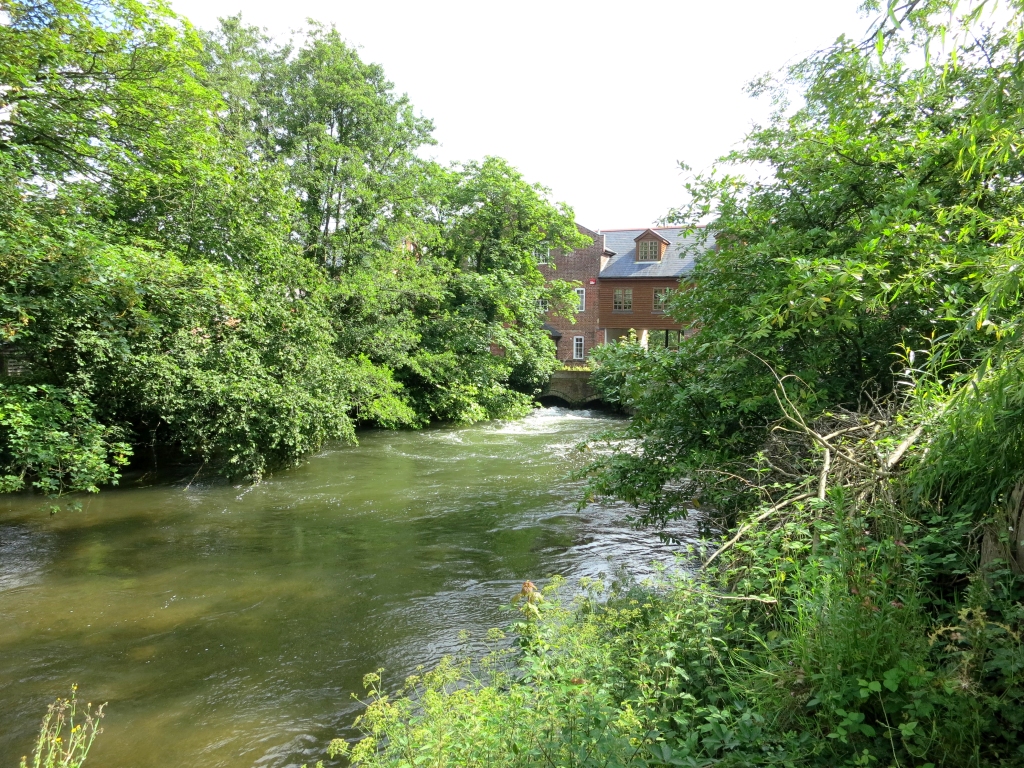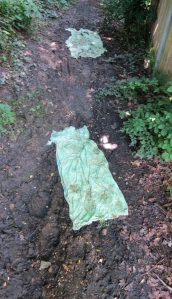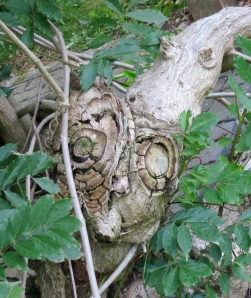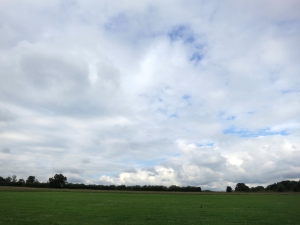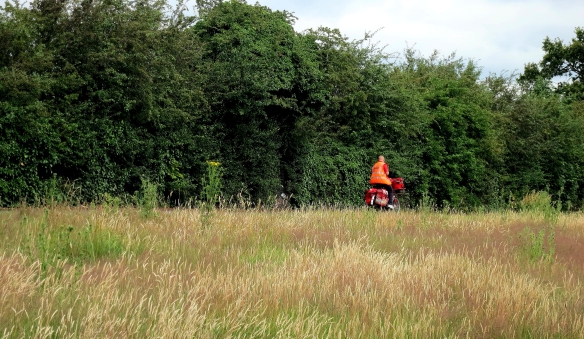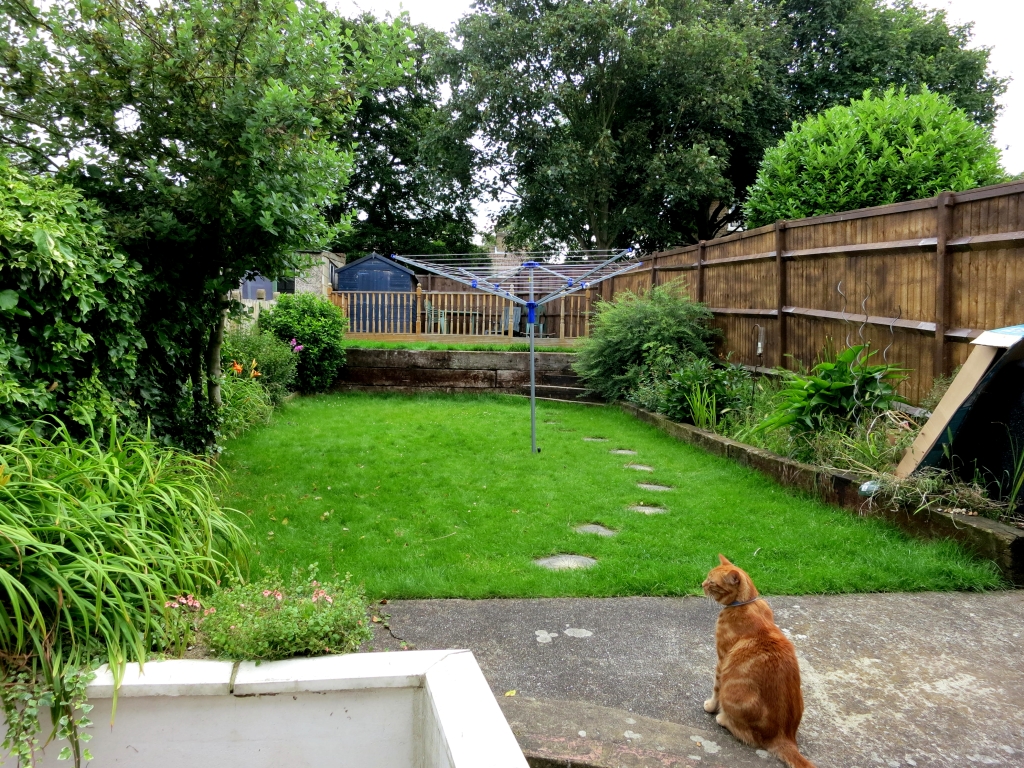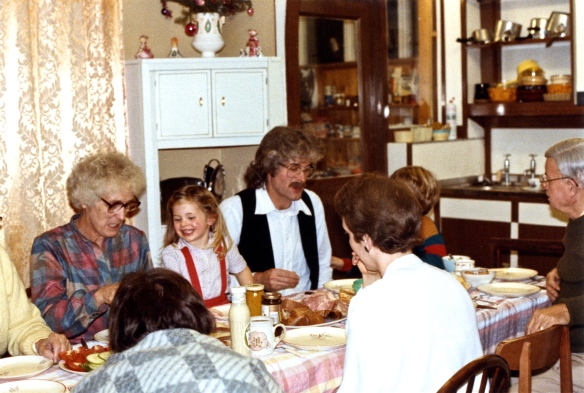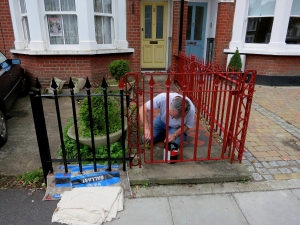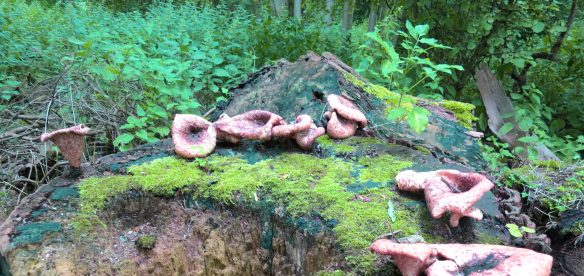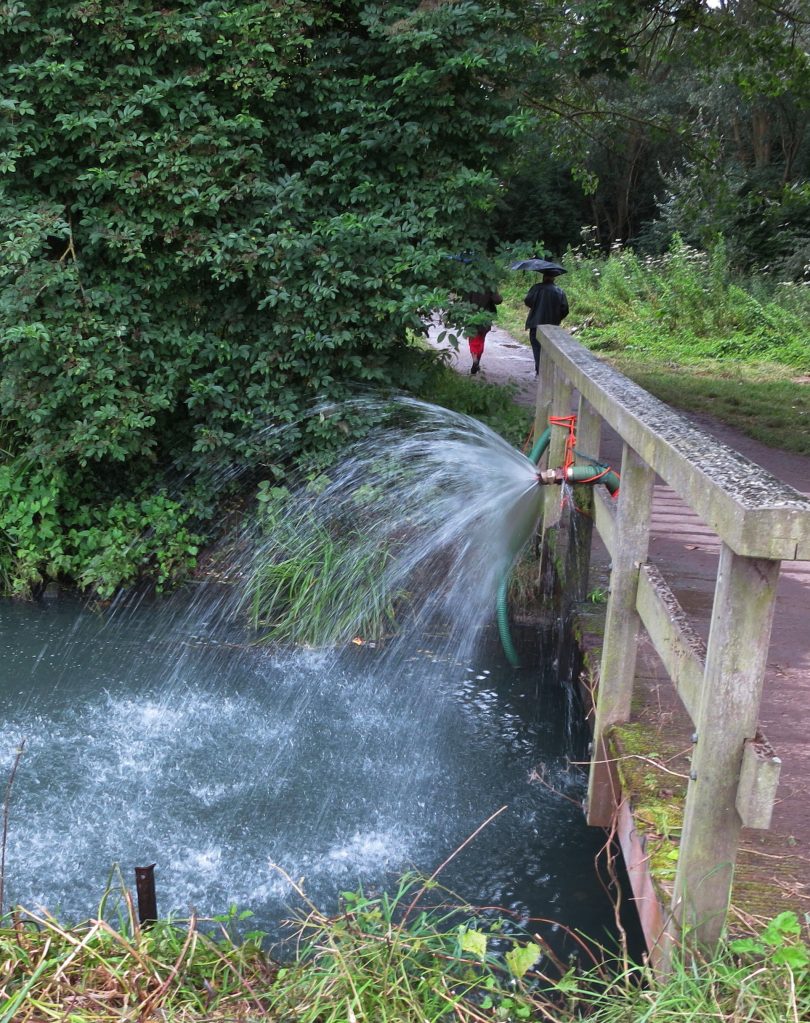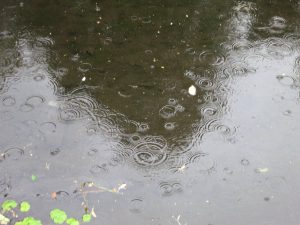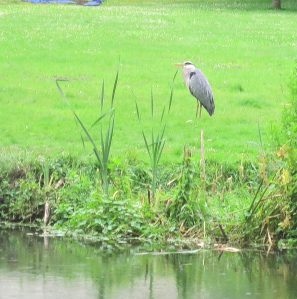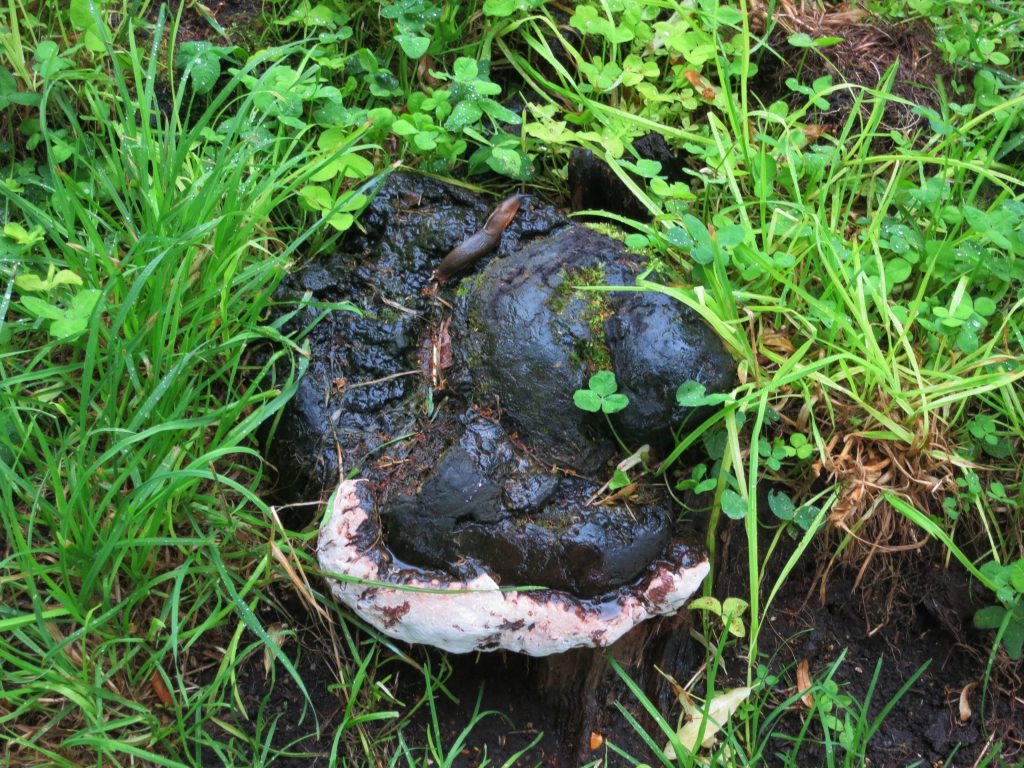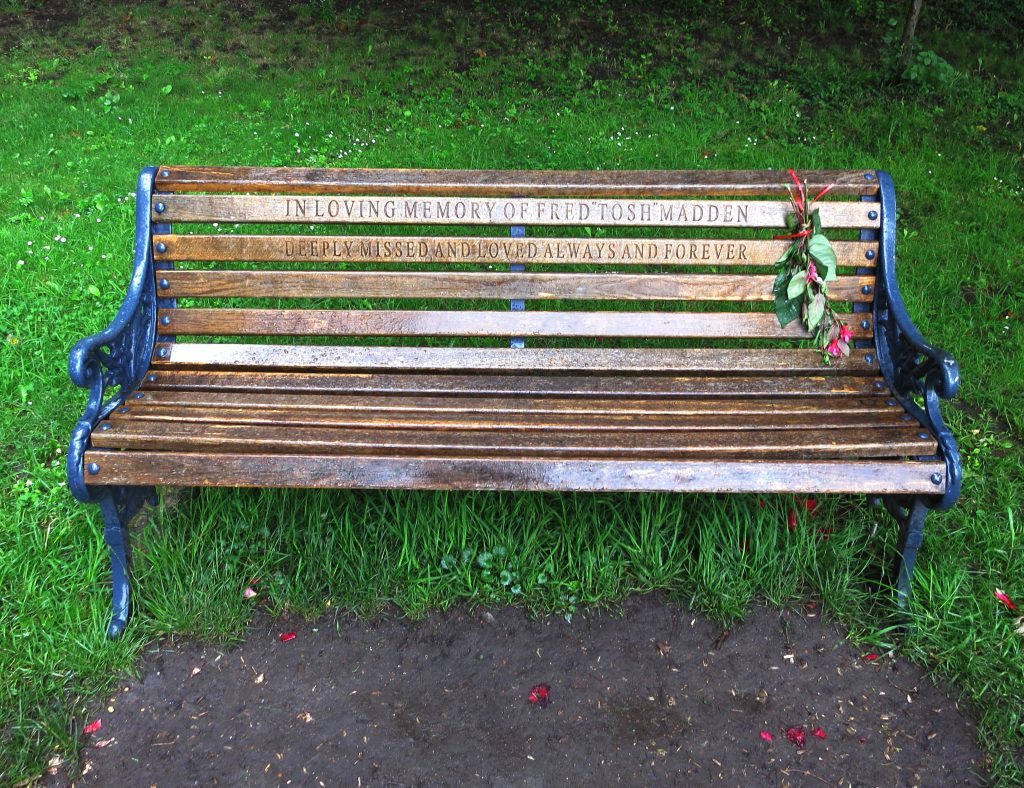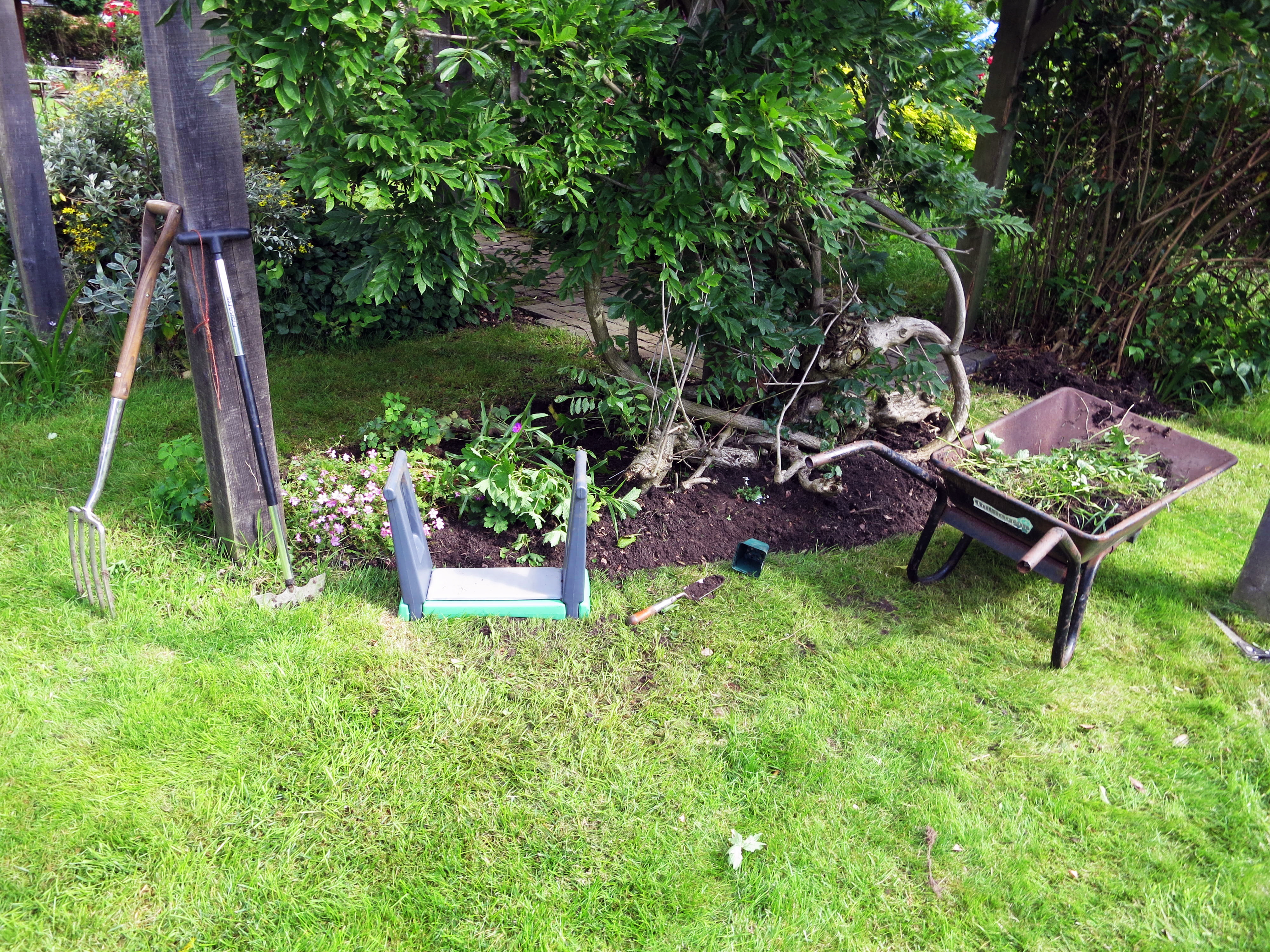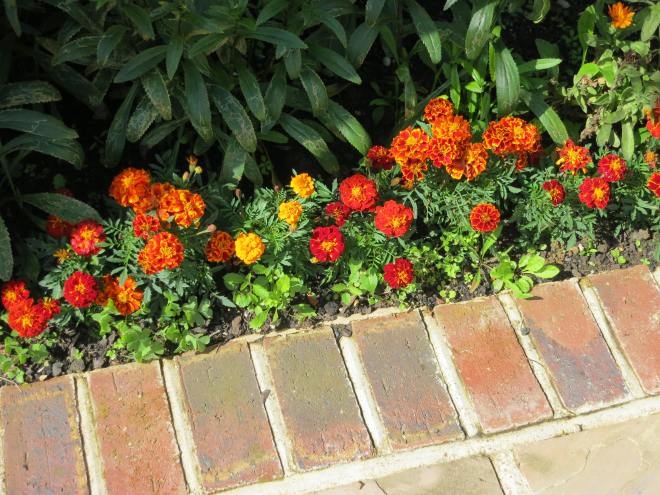Before the rain set in, Jackie in particular having got up early, we managed to get quite a bit of planting done, and even start a bonfire. New and older, refurbished, beds are being filled, and, where necessary, thinned out; some plants being separated and moved.
The variously hued heuchera make a colourful display.
The patio area, which has received Jackie’s attention all through the year, now looks splendid.
Jackie has, in this area, and in her hanging baskets transplanted her small London garden into Elizabeth’s The Firs. For the short length of time the sun was out today the flowers could be seen in all their glory. By about 11 a.m. we gave up, left the planting, the bonfire, and the new bed I was starting, to the elements, and went off, smelling of wood smoke, to Sainsburys to buy wine for Bill’s birthday. Helen and Bill are hoping to hold a barbecue to celebrate this tomorrow. As we were nearing Sainsburys Jackie mentioned that last week their entrance hall had been totally given over to a display of raincoats and umbrellas for sale. They had obviously had a run on them because there were none there today. What they clearly had not had a run on was their stock of garden recliners. An announcement came over the public address system offering them at a price reduced to £10. We didn’t think we would have much use for one this year. We did, however, wonder whether one of the gazebos sold in Hilliers’ garden centre which we visited on the way back, might be a good method of keeping the rain off the gardeners at work. Later, without knowing this, Elizabeth made the same speculation.
From Sainsburys we went on to Wickham where we found a present for Flo. Before arriving at Wickham we stopped off at the vineyard for a tasting. Although I could manage, at a pinch, to recognise the taste of strawberries in one of the wines, I struggled with some of the other fruits which differed from the grape. What was more difficult was to discern any aroma other than the charred wet wood lingering on the fingers holding my glass. Having sampled everything in sight we came away with six bottles and two tea towels. Jackie thought it was quite ridiculous of me to buy two French tea towels to take to France. It seemed perfectly logical to me. We returned to Elizabeth’s for lunch, and, as so often when eating, the subject for discussion was the efficacy or otherwise of various forms of dieting.
Over breakfast Elizabeth and I had discussed Cottenham Park, the theme of yesterday’s post, and she had also remembered trips to Dundonald Recreation Ground in Wimbledon. The path along which we would have walked is featured on 11th. May. As a little girl she had been disconcerted by the gaps between the flooring planks of the bridge over the railway to that destination. Being able to see through them to the railway lines, to her so very far, below, she thinks is when she discovered her fear of heights. My similar awareness came much later when, in my early forties, deciding that the guttering of our house in Gracedale Road needed attention, I bought a nice long ladder. Starting to scale it, I began to get a bit wobbly. The ladder remained firmly fixed; it was I who was unsteady. I never did get to the top, and, for all I know, the guttering still needs attention.
My paralysis was always worse when there were children involved. I feared for them as much as for myself. A few years before I bought that ladder, in 1973, I had, alone, taken Michael, Matthew and Becky to North Wales for a few days. The little ones went running towards the pitch dark waters of a lake. I was concerned that they might fall in and called them away. Had I known at that moment that it was an extremely deep disused slate quarry I would not have been half so calm about it.
Much later, when Sam was about ten, and therefore older than Mat had been in 1973, we were walking as a family in Cumbria. On our return journey I was faced with a sheer rock face we had to climb. Looking back now it wasn’t much more than fifteen feet or so, and we had come down it with no difficulty. The problem for me was that I could not see beyond the skyline at the top. Emptiness beckoned. Sam clearly sensed my fears. He took my hand, said: ‘this way Dad,’ and led me up.
Later still, again in the Lake District, the family and Ali and Steve wanted to climb up from Grasmere, across Striding Edge, to a summit whose name I can’t remember. Striding Edge is a notoriously narrow ridge with a sheer drop of thousands of feet either side. No way was I going that way. I took a softer route, but, seeing it as part of my marathon training, I ran all the way up. I was going great guns until I slipped on some scree and looked up to see a straight line on the horizon above me. My brain produced a similar affect to the time mentioned above. I sat down. After a while I gritted my teeth, rose to my feet, and began to climb. Pretty soon I sat down again. This went on for about three quarters of an hour during which I’d covered about fifty yards, but had reached the top. The sheer drop I’d feared turned out to be a very wide path about as wide as Oxford Street. ‘What a twit’, I thought. I then strode along to the agreed meeting point, glancing across the wide open space to Striding Edge. I could see my family silhouetted against the skyline on the sharp bit of an enormous razor blade. I sat down again. Gradually piecing myself together I managed to arrive at the summit at more or less the same time as the others. Somewhere there is a photograph to prove it.
Until I began my reguIar flights to France I always had similar discomfort on a plane. This was mostly on takeoff and landing. It is now no longer a problem. Should I go on climbing expeditions with the same regularity? I don’t think so, somehow. I understand Tom Cruise is rather short; nevertheless watching him at the beginning of ‘Mission Impossible’ was a tall order for me.
This evening I made a beef rogan josh. Elizabeth and I committed the crime of drinking red wine with it; Marques de Montino Reserve rioja 2007. Jackie had the Co-op’s Jubilation beer. There were a couple of slight hitches over the samosas, which were from Sainsburys. I called the ladies for their food and Jackie asked me if I’d done the samosas. I hadn’t. ‘How long do they take?’, I asked. ‘Oven. Top. Ten minutes.’ was the reply. Elizabeth turned on the oven. I waited a while and put the samosas in. Ten minutes later I was ready to serve up. Unfortunately the samosas were cold. What had I done? The cooker is a Belling range model and I had put the samosas in the top left section which happened to be the grill. The bottom left oven had been blasting away with nothing on its top shelf. Something got lost in translation. However, the meal went down very well, and as, as always, I wasn’t quite sure what my method had been, Jackie told us the story of the Victorian parlour song ‘The Lost Chord’. You may need to Google it.
During the ten minutes or so that we were finally waiting for the samosas we did a tour of the garden to admire the work that Jackie had been able to do during intervals in the rain. It was then that we realised we had been engaged in a triple role reversal. Jackie had done the gardening, Elizabeth had been hanging pictures, and who had done the cooking?
